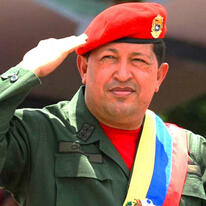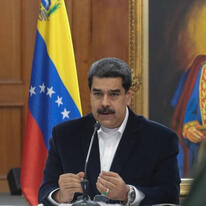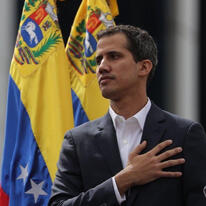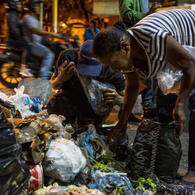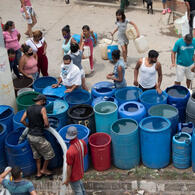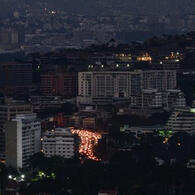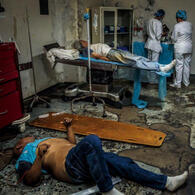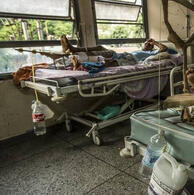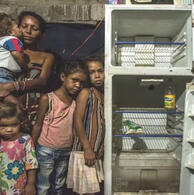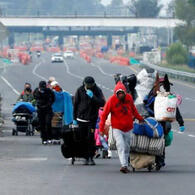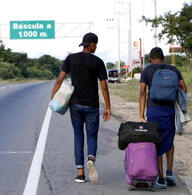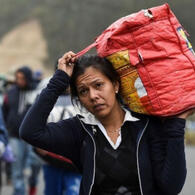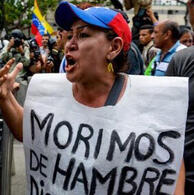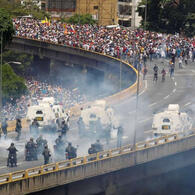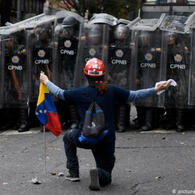VENEZUELA
how to help?
Educate Yourself
Donations
Disclaimer: I'm a venezuelan citizen, I gain nothing but helping people to be aware of the situation in my country, if you support this government keep that to yourself.
If you have more resources please contact me
Venezuela's government in the past years
Venezuela is a country located in Latin America. Before Chavez, a DICTATOR, took over the country Venezuela was one of the richest countries in the world. The economy was at its best, the tourism was IT. Everyone across the world wanted to travel to Venezuela.
Unfortunately in 1998, Hugo Chavez, a socio-comunist “politician”, won the election and that was the start of our disgrace. People who voted for Chavez were rich people who, as soon as he won, left Venezuela because they knew what was coming.
To make it short, Chavez ruined the country. He kept winning by rigging the elections. His comunism is the reason Venezuela is one of the poorest most insecure countries in the the world. He stole millions and millions of dollar from us, left people without their companies and became one of the richest men in the world while Venezuelans kept eating from the trash. Venezuela has also one of the highest ratings of murders and delinquency in the world, making Caracas, the capital, the third most dangerous city in the world.
In 2014 when Chavez died, Nicolas Maduro, A DICTATOR, took over the presidency making Venezuela ten times worse than when Chavez was alive.
Mr Guaidó and President Maduro have been at loggerheads since January, when the former invoked the constitution and declared himself interim president.
Mr Guaidó argued that the elections which had returned Mr Maduro to power for a second term in 2018 had not been free and fair.
Since then, more than 50 countries, including the US and most nations in Latin America, have recognised Mr Guaidó as Venezuela's legitimate leader.
But Venezuela's military - a powerful force in the country - and influential allies such as China and Russia have stuck by Mr Maduro.
The four countries interested in the presidential battle
An attempt by Mr Guaidó to get the military to switch allegiance to him failed, and the country remains in limbo with both men claiming to be the legitimate president.
Meanwhile, a severe economic crisis has exacerbated and shortages of food and medicines have grown even more acute. United Nations figures suggest four million people have fled the country since 2015.
Venezuela's government blames the shortages on US sanctions but the opposition says they are down to years of mismanagement.
Food, water, medical and electricity services.
In Venezuela there is no water, electricity, internet service, education, hospitals and many others basic needs. Even if there is food in all the markets the prices are so high that people can't buy anything. Add all that to a pandemic, right? can you imagine going through this pandemic without water? without electricity?
The economy is another topic the venezuelans, don’t even understand but basically out of nowhere they had to start using US DOLLARS/EUROS, in a country where the Bolivar is the official currency. Doctors and nurses make between $3 to $5 (US) A MONTH... 3 dollars A MONTH.
HOSPITALS IN VENEZUELA
There’s no medical equipment, not even alcohol, cotton or even the most basic medical stuff people need. Of course there’s no water, sometimes hospitals go weeks without electricity, there’s no food and patients have to sleep on the floor.
BLACKOUTS
Sporadic blackouts are common in crisis-hit Venezuela, where decades of underinvestment have damaged the country's power grid.
In March 2019, the country was hit by a series of blackouts, including one that affected all states and lasted a week.
The blackout, which started at 16:45 local time (20:45 GMT) on Monday, caused a massive gridlock in Caracas as traffic lights lost power. Sidewalks were crowded with pedestrians after the city's metro stopped running.
Power was restored in the capital and some other parts of the country in the early hours of Tuesday local time, state-owned power company Corpolec said.
But workplaces and schools were due to remain closed during the day as the government urged people to stay home.
What are the real reasons behind Venezuela’s blackouts?
"These blackouts are catastrophic," 51-year-old janitor Bernardina Guerra, who lives in Caracas, told Reuters news agency. "I live in the eastern part of the city and there the lights go out every day. Each day things are worse."
Venezuela depends on its vast hydroelectric infrastructure, rather than its oil reserves, for its domestic electricity supply.
Immigration
People in Vzla are so desparate to leave that they walk to Colombia and other countries nearby. Most countries treat them in a very xenophobic way. Can you imagine walking DAYS to another country because ppl can't afford plane/bus tickets? How many kilometers are you prepared to walk to flee hunger? For Venezuelans, no distance is too great to escape their country’s economic and social collapse.
Latin America has a long history of migration, but today an unprecedented exodus is unfolding. Between 2016 and November 2019, more than 4.6 million men, women, and children have left Venezuela in search of a better future, according to data from the United Nations High Commissioner for Refugees (UNHCR).
Venezuelan migration is the largest human mobilization in the region’s recent history. Migrants are fleeing a humanitarian and economic crisis that has exacerbated a decline in public safety and living standards.
According to the UNHCR, between 4,000 and 5,000 Venezuelans leave the country every day. Most of them travel on foot without really knowing where they will wind up, but they go anyway with the hope of a better future for their families. This exodus is changing the face of Latin America and the Caribbean forever.
Colombia, Peru, and Ecuador are the main destinations for these migrants.
Even though some of this immigrants can be disrespectful to other countries cultures and lifestyles, most venezuelans only want a place to have a good future that their country doesn't permit them to have.
Protests
In 2014, tired of the dictatorship, the people took over the streets for months making some of the biggest pacific protests in the history of Venezuela. Of course being in a dictatorship that peace can only last a few days. Maduro gave orders to the military and the police to go to the streets to shook to kill without a pause. Hundreds of people, most of them students between the ages of 15-40 were shot, hurt and killed by Maduro’s dictatorship. Still nobody outside of Venezuela cared. The protests stopped until 2017 when another wave of protests happened, this time with more people and of course with more repression.
300+ venezuelans died in the streets at the hands of Maduro’s dictatorship. One death that sounded a lot was the death of Neomar Lander, a 17 year old student who only wanted a better country to live. Neomar loved Venezuela, his family and his life goals. He was planning to move to Spain to study but was killed by the Maduro regime at only 17 years old. The country went crazy with indignation, anger and hurt. They were killing us without even caring if the person was a child. Up until this day people are still being killled, kidnapped and tortured in Venezuela. The military and police kidnap people to torture, kill and disappear and no international organization helps.
